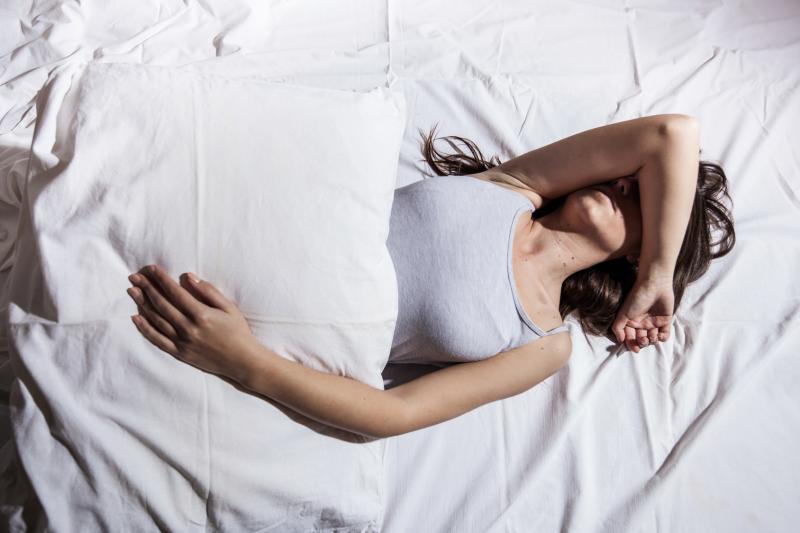 Women with sleep disorders may be more than three times as likely to experience infertility as those who sleep well.
Women with sleep disorders may be more than three times as likely to experience infertility as those who sleep well.Sleep quality, whether subjectively or objectively measured, is associated with health-related quality of life (HRQoL), according to a recent Singapore study.
“The findings confirmed that subjectively reported sleep disturbances were associated with a lower physical health-related quality of life. The findings also confirmed that higher sleep efficiency, objectively measured, was associated with greater physical health-related quality of life,” said researchers.
In 329 full-time working adults (mean age, 40.7±11.1 years; 77.8 percent male) from Singapore, the mean physical (PCS) and mental (MCS) component summary scores were 51.3±6.2 and 50.2±7.5, respectively, as collected by the Short Form 36 survey. Participants slept an average of 5.8±0.9 hours per night. [Int J Environ Res Public Health 2019;doi:10.3390/ijerph16214147]
Mean self-rated sleep quality during the past month, as measured by the Pittsburgh Sleep Quality Index (PSQI), was 5.1±2.8.
Unadjusted generalized linear models found that majority of the subjective sleep subdomains were correlated with physical HRQoL: subjective sleep quality, sleep latency, sleep duration, sleep disturbances and daytime dysfunction (p-all<0.001).
However, adjusting for sociodemographic, health, lifestyle and occupational factors attenuated most of these, such that only sleep disturbance remained significant (β, –1.829, 95 percent confidence intervals [CI], –3.216 to –0.443; p<0.05). In terms of objective sleep measurements, only sleep efficiency emerged as a significant predictor of physical HRQoL (β, 0.211, 95 percent CI, 0.05–0.372; p<0.05).
In comparison, only subjective sleep parameters appeared to have any meaningful effect on mental HRQoL. Namely, the domains of subjective sleep quality, sleep latency, sleep duration, sleep disturbances and daytime dysfunction (p<0.001) were identified by unadjusted linear models. Controlling for confounders attenuated most of these relationships, leaving daytime dysfunction as the only significant predictor (β, –2.945; –4.136 to –1.754; p<0.001).
Subdomains of objective and subjective sleep measurements were either weakly or not correlated with each other, save for objective and subjective sleep duration (r, 0.27; p<0.01).
“Sleep hygiene education in workplaces in Singapore has the potential to improve both the quality and quantity of worker's sleep and may also help improve worker’s health-related quality of life, and therefore the effects should be studied in a longitudinal fashion,” said the researchers, pointing out that investigations over extended period of time may also reveal information about the bidirectional relationship between sleep and HRQoL.
Moreover, future efforts should focus on elucidating the mechanistic pathways linking sleep to HRQoL, they added. “These will better inform the allocation of resources for an increased outreach of educational efforts aimed at improving sleep health literacy and modifying workplace health policies to improve sleep health and quality of life among workers in Singapore.”